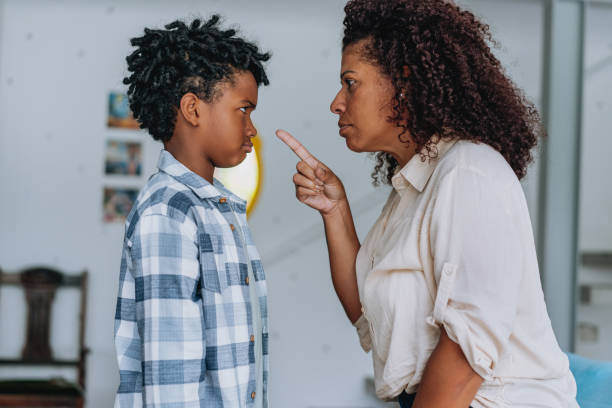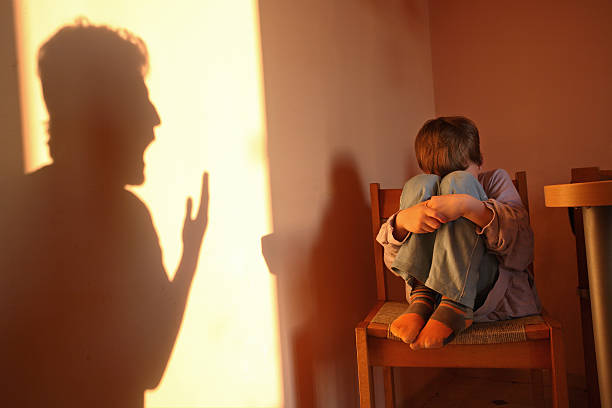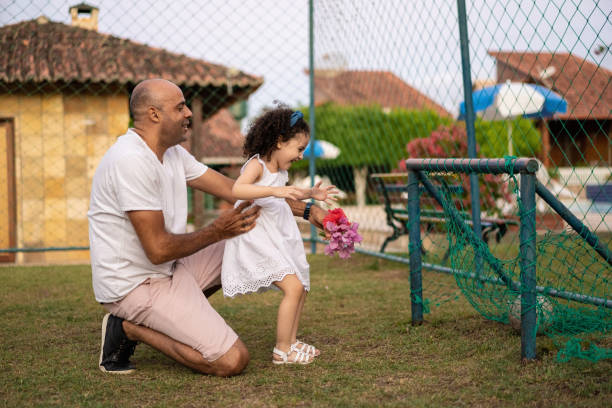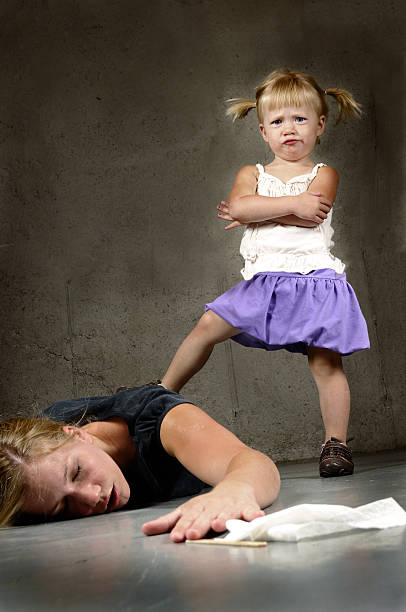5 Possible Reasons Why Your Toddler Hits You and Solutions

Why do toddlers hit you when you least expect it? As a parent to a toddler between 6 months and two years, you must have encountered a situation where a baby just hit you. They do it without provocation. If you have not, brace yourself for a mega-hit.

When toddlers hit you, they do it with all their might and power, targeting the most vulnerable part of the body. But the big question is, why do babies hit people? In this article, we will talk about seven possible reasons why babies hit people.
5 Reasons Why Your Toddler Hits You Unprovoked
1. They are not mini-adults

If your five-year-old or teenage child smacked your face, you would react immediately. You might exclaim the shock on your face, curse, or hit them back hard. In this case, you are dealing with a baby.
How do you react when your toddler hits you? Do you hit them back such that they refrain from hitting others?
Babies are not mini-adults who would know that hitting you is bad. They are being what they are: toddlers. As a parent, don’t quarrel with your toddlers or “punish” them when they hit you since they are unaware of their actions.
2. They can’t express feelings with words.

Another reason why your toddler could hit you is when emotions get the better part of them. Unlike adults who express their emotions differently, toddlers only cry or hit you.
You could have denied the toddler their favorite toy, hit them, shouted at them, or done anything that raised their rage. Since you are dealing with a toddler who cannot express dissatisfaction, expect to receive a few slaps, blows, or even bites.
Research conducted by the National Library of Medicine revealed that toddlers were likelier to harm others than adults. According to the research, babies were likely to hit others when angered, which explains why a baby is likely to hit you.
3. Poor impulse control

Toddlers have poor impulse control, unlike older children and adults. Poor impulse control explains why toddlers drop things from their hands and even hit you abruptly.
Your baby could be trying to hug or give you a high-five, but since they cannot control their impulses properly, they will end up hitting you. The abrupt hand movements end up hitting your face.
Similarly, poor impulse control in toddlers also results in low self-control. You might realize the baby might hear your instructions and directions but still hit you. It is important to note that a baby’s speech develops before their self-control, hence the reason for hitting you despite your warning.
4. Expressing frustration

Just like adults, toddlers get frustrated from time to time. When you constantly deny them something they adore, they might hit you to vent their frustrations. Similarly, when playing, they might frustrated when they fail to “win” or when they destroy their toy.
In other cases, toddlers might get frustrated when you fail to give them the needed attention, making them hit you.
The frustration in the toddlers’ hearts might make them throw away their toys or even hit you. Do babies get relieved when they hit you?
When toddlers hit you or throw away their toys, they want to tell you they are hurt. As a parent, you should be the bigger person in such a case.
Help the toddlers mend their toys. Explain to the toddlers that hitting anyone is bad, but be cool while at it. Play with them, and let them “win” some matches.
5. They don’t know that hitting hurts.
Babies might also hit you innocently since they might not know that hitting you hurts. Toddlers see their parent(s) as a superhero who knows no pain and can withstand whatever life throws on their faces.
Similarly, toddlers one to three years might not know that hitting someone might inflict pain. In the toddler’s mind, hitting you can never hurt you.
What Should You Do When a Toddler Hits You?
To his point, you have an idea why your toddler hits you. The big question is, what should you do when this happens?
As mentioned earlier, you should be the bigger person as a parent. These five tips can help you cope and reduce the incidences of your toddler hitting you:
A. Setting Rules and Consequences

The first way to stop your toddler from hitting you is to establish non-negotiables as far as physical aggression is concerned.
When setting rules for the toddler(s), use polite language to avoid triggering them further or instilling fear.
Anytime the toddler raises their hand to hit you, tell them, “We said that hitting mommy/daddy hurts! Don’t do it.”
In addition to setting rules, state the consequences of disobeying these rules. These are the most common consequences that you can set on the toddlers:
Restitution is when you give the toddler an extra task to complete for disobeying you. For example, if the toddler continuously hits you despite issuing warnings to them, you can tell them to clear the table after meals.
Time-out: According to the CDC on parenting, timeout is the most punitive yet effective way of managing misbehavior. Timeout is when you withdraw a child’s most fun activities for misbehaving.
For example, if your toddler hits you, you stop playing with them there and then. You can also withdraw and stop talking to them for several minutes until you see their remorse. You can also take away their toys and tell them you did it for hitting you.
B. Teaching Appropriate Behavior

The most appropriate method of dealing with a toddler who hits you is teaching them the right way.
If your toddler hits you, tell them that hitting is bad, makes babies bad, and mommy/daddy mad at them.
You can also teach your baby how to manage their anger. You can teach them crucial anger-management tips like taking a deep breath, counting from one to ten, yawning, and drawing their favorite pictures using their most preferred crayon.
C. Acknowledging Positive Behavior

Anytime your toddler behaves positively, make an effort to praise them. You can buy them their favorite toy, take them to the amusement park, and do other fun activities.
By acknowledging their positive behavior, you subconsciously suppress their negative behaviors, such as hitting you.
If the toddler gently touches you instead of hitting, praise them for being “gentle” and considerate. Clap for them and call their siblings or friends to praise them.
In my article on beliefs that you should stop imposing on your children, I mentioned that toddlers should be allowed to vent. If your toddler can express themselves, let them vent to you. Venting is a positive attribute you can use to gauge your baby’s anger and provide solutions. Encourage this behavior.
D. Avoid Corporal Punishment

“An eye for an eye” is one of the most common forms of “disciplining” toddlers that parents have been conditioned to apply.
The worrying thing about spanking your children is that it leaves them at a loss.
“Mommy/daddy hits all the time but when I hit back, they beat me up. They are not fair to me!”
Corporal punishment also instils fear and hatred from toddlers.
Instead of corporal punishment, opt for the alternative methods highlighted earlier.
E. Get Professional Help
There are instances where you should seek medical help when a toddler hits you.
Toddlers, especially those above three years old, have better impulse and anger control and should not hit others.
There could be underlying medical conditions that could cause your toddler to hit you. These conditions include Attention Deficiency Hyperactivity Disorder (ADHD) and oppositional defiant disorder.
Bottom Line
As a parent, don’t let “minute” behaviors like a baby hitting you repeatedly go unaddressed. Stopping a teenager or an adult who has grown up hitting other people might be a Herculean task. The earlier you address this behavior early, the better.


